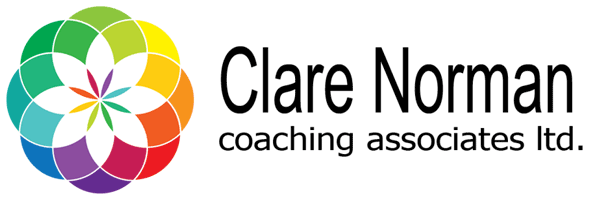Yesterday, I received feedback that I might be “too creative” for a role in a certain sector. I understand that some companies are risk averse – that’s a part of their DNA. So that’s likely not the right environment for me either. But it got me thinking about who I am and what I believe in, as well as how to bring companies to the edge; so that they get a really good return on investment from their leadership and talent development.
I’ve written about this before in Hopeless returns on investment from leadership development, and also in last week’s post “The creed of control reigns supreme”…how can organisations create growth through freedom, balanced with control?
Perhaps I am a bit “out there,” when it comes to how I think about the best talent development practices. But I read the latest research in a bid to understand how the brain works, and how that affects behaviour change in the workplace; and I talk to people in the field who think the same way and/or challenge my previous thinking. We learn more and more over time about what works and what doesn’t in talent development. Traditional training does not work in isolation; we need the transfer of learning aspects as well, such as coaching, action learning, and social learning, if we are to get the best value for our investment. Transfer of learning is nothing new, but it is hard to achieve compared to running a training course. Maybe that’s why some conservative companies shy away from it?
From a talent development perspective, we also need to shift to listening to the employee more – understanding the needs and desires of employees, rather than HR assuming we know what’s best for people, or that employees are even interested in the HR cycle. They’re actually interested in their own career journey, and sometimes, HR processes get in the way of that, rather than helping them. So we need to shift our mind-set as HR practitioners to thinking about the employee experience. That’s employee engagement 2.0, if you like, in service of business results.
That’s at the cutting edge, for sure, and it’s not how many companies are thinking now. So how can we bring these traditional companies to the realization that developing their people in this way is the best way for business results? Maybe talking about things being innovative is just plain scary for them. The gap might be too big just now. Could it be that simple? If I stopped talking about things as innovative, cutting edge, creative, would that help? I don’t know. But it’s food-for-thought for me as I prepare for further interviews. I’d welcome your thoughts.




Too creative? Not possible. I saw a great picture the other day with two circles. A small one that said, “your comfort zone” and a big one that said “where magic happens”. Great illustration that we we have to push ourselves out of our comfort zones to do the truly remarkable….how we do that, with creative challenges. Wouldn’t surprise me that even though they deemed you’re “too out there” for their comfort zones they’ll start to question if it’s time for them to start growing.
yes, so organisations have comfort zones, just like people do; and we need to find ways to help them to break out of those comfort zones. What can we learn from the way that individual people do that, I wonder?
As a kid, I picked this essential lesson from my granny when she told me the story of #Androcles and the Lion : “an investment done in good earnest never goes in vain! ” Awesome dividends too require some patience along with the investment and time. What I understand is that people, no matter who or what they are, care for those who have put faith in them. Just a matter of time by when they start giving back, start paying off the dividends 🙂
A very interesting post Clare. And one that I can relate to. After working for Accenture and Avanade, I worked for an insurance company that was only in the early stages of people development. I was often told that my expectations were too high in terms of what we should be doing as an organisation. Now I have my own business, I see lots of organisations in different stages of the journey. I think the key thing is to have one eye on the horizon in terms of what you want to achieve and one eye on the ground right in front of you. Start from where they are and gently lead them to where they need to be. But if their starting point is a backward step for you then it’s probably not the right organisation for you.
I agree with keeping an eye on the horizon, while also working from where a company is today, AND I think those high expectations are important, for the benefit of business results. From that point of view, they don’t seem like such high expectations to me – every business talks about results, and it would be insanity to keep doing the same things and expecting the results to change (was that Einstein who said that?).